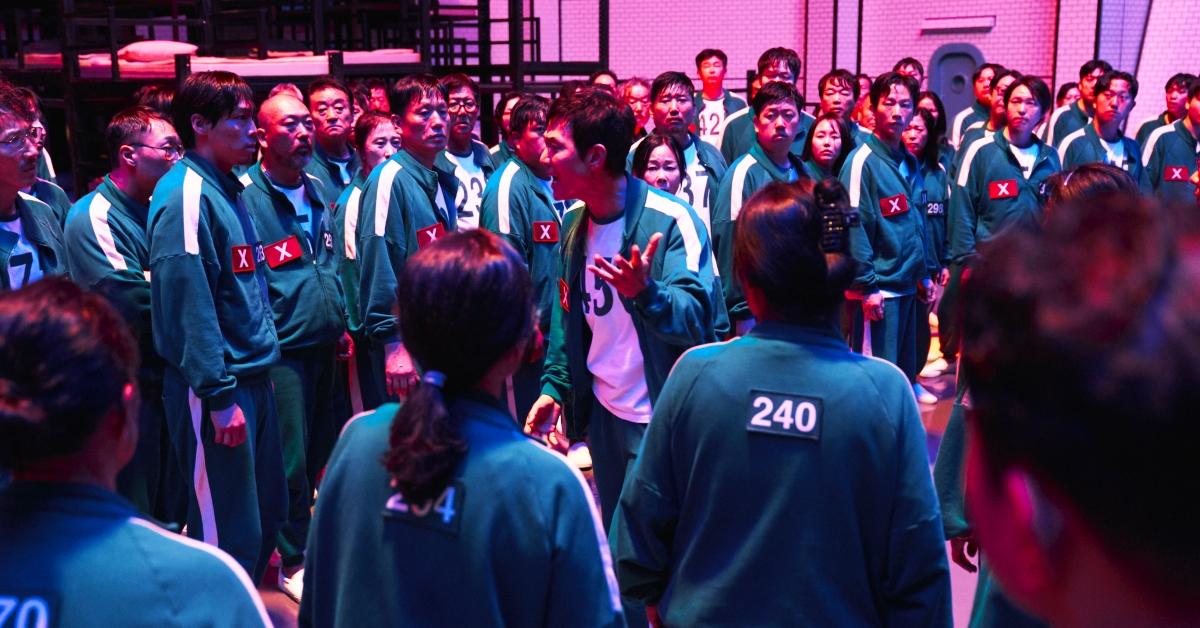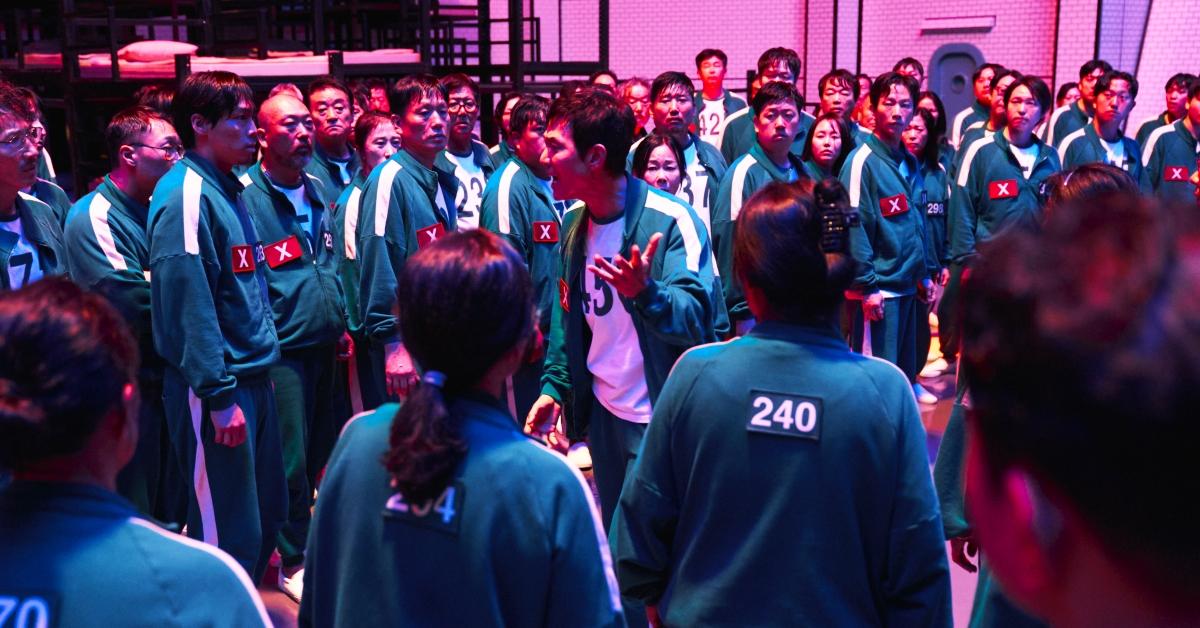Squid Game Histoire Vraie? The wildly popular Netflix series sparked a global conversation, prompting many to wonder: how much of the show’s brutal reality reflects real-world issues? This exploration dives into the socio-economic disparities in South Korea, the pervasive nature of gambling addiction, and the disturbingly realistic depictions of violence and desperation. We’ll examine the show’s inspiration, comparing the fictional games to real-life parallels and exploring the cultural factors that made “Squid Game” such a worldwide phenomenon.
We’ll analyze the show’s commentary on social inequality and economic injustice, looking at the ethical dilemmas presented and the potential impact on viewers’ perceptions. From the debt-ridden contestants to the shockingly violent games, we’ll unpack the layers of “Squid Game” and its unsettlingly close resemblance to certain aspects of reality. Prepare to question what you see on screen and consider the darker side of our globalized world.
The Inspiration Behind “Squid Game”: Real-World Parallels
The global phenomenon that is “Squid Game” didn’t emerge from a vacuum. Its gripping narrative draws heavily from real-world socioeconomic anxieties and brutally competitive environments, particularly within South Korean society. This section explores the show’s inspiration, comparing its fictional elements to stark realities.
South Korea’s Socioeconomic Disparities and Debt-Ridden Characters
The show powerfully portrays the desperation of deeply indebted individuals driven to extreme measures for survival. This mirrors the struggles faced by many in South Korea, a nation with a significant wealth gap and high levels of household debt. The characters’ willingness to risk their lives for a chance at financial freedom reflects the immense pressure faced by those trapped in cycles of poverty and debt in a highly competitive society.
The intense pressure to succeed academically and professionally, combined with limited social safety nets, contributes to this precarious situation.
So you’re wondering about “squid game histoire vraie”? While the show’s fictional, its themes of desperation and inequality hit hard. The show’s popularity even spawned discussions about a potential “vip 3 squid game,” check out this link for more info: vip 3 squid game. Ultimately, “squid game histoire vraie” is less about literal truth and more about reflecting harsh realities, making it so compelling.
Real-Life Survival Games and Competitions
While “Squid Game” presents a heightened and fictionalized version, elements of the show’s premise echo real-life competitions and survival challenges. The extreme pressure and life-or-death stakes are reminiscent of certain reality TV shows, though thankfully lacking the lethal consequences. The show’s creators may have also drawn inspiration from historical examples of exploitative practices where vulnerable individuals are coerced into participating in high-risk activities for minimal reward.
South Korea’s Economic Development and Social Inequality
South Korea’s remarkable economic growth since the Korean War has been accompanied by a widening gap between the rich and poor. The rapid industrialization and subsequent shift towards a highly competitive, meritocratic society have left many behind. This disparity is reflected in the show’s stark portrayal of social stratification and the desperation of those struggling to keep up.
Fictional vs. Real-Life Exploitative Practices
| Squid Game Game | Real-Life Parallel | Description | Impact |
|---|---|---|---|
| Red Light, Green Light | Child Labor/Exploitation | Children forced to work long hours under dangerous conditions. | Physical and psychological trauma, stunted development. |
| Honeycomb | High-stakes Exams/Competitions | Pressure to succeed in high-stakes academic or professional environments. | Stress, anxiety, mental health issues. |
| Tug-of-War | Corporate Layoffs/Downsizing | Brutal competition within corporations leading to job losses and financial ruin. | Unemployment, poverty, loss of dignity. |
| Marbles | Loan Sharking/Debt Traps | Predatory lending practices trapping individuals in cycles of debt. | Financial ruin, homelessness, desperation. |
Gambling and Debt in South Korean Society
The pervasive theme of gambling addiction and its devastating consequences in “Squid Game” is deeply rooted in the realities of South Korean society. This section delves into the prevalence of gambling addiction and its connection to the nation’s debt crisis.
So you’re wondering about “Squid Game histoire vraie”? While the show’s fictional, the desperation it depicts is sadly real for many. Think about the scale of that desperation; it’s almost as breathtaking as the visuals of the shanghai new year drone show , a spectacle of light and technology. But back to “Squid Game histoire vraie,” the show’s power lies in its reflection of societal pressures and inequalities.
Prevalence of Gambling Addiction and its Consequences
Gambling addiction is a significant social problem in South Korea, contributing to a substantial portion of the nation’s debt burden. The easy accessibility of gambling options, coupled with societal pressures and a lack of readily available support systems, exacerbates the issue. The consequences range from financial ruin and family breakdown to mental health issues and even suicide.
Portrayal of Debt and Desperation: Fact vs. Fiction
The show’s depiction of individuals driven to desperation by insurmountable debt is not an exaggeration. South Korea has one of the highest household debt-to-GDP ratios among OECD countries. Many individuals are struggling under the weight of loans, credit card debt, and other financial obligations, mirroring the plight of the “Squid Game” participants.
Real-Life Cases of Extreme Financial Hardship
Numerous documented cases illustrate the severe consequences of gambling addiction and overwhelming debt in South Korea. These stories often involve families losing their homes, businesses collapsing, and individuals resorting to desperate measures to alleviate their financial burdens. The show’s fictional scenarios, while extreme, reflect the very real pressures and desperation experienced by many.
Social and Economic Factors Contributing to High Debt Levels
- High cost of living and education
- Easy access to credit and high-interest loans
- Pressure to maintain social status
- Limited social safety nets
- Prevalence of gambling addiction
The Depiction of Violence and Brutality: A Societal Reflection
The graphic violence in “Squid Game” is undeniably disturbing, but it serves as a powerful commentary on societal norms, power dynamics, and the vulnerability of marginalized groups. This section explores the show’s depiction of violence and its real-world implications.
Violence and Power Dynamics in “Squid Game”
The show’s portrayal of violence reflects a brutal power imbalance. The wealthy elite are depicted as callous and indifferent to the suffering of the participants, highlighting the dehumanizing aspects of extreme social inequality. The violence is not merely gratuitous; it underscores the systematic oppression and exploitation of vulnerable individuals.
Real-Life Instances of Violence and Exploitation
Unfortunately, the brutal violence depicted in “Squid Game” has real-world parallels. Numerous instances of violence and exploitation against vulnerable populations exist globally, often stemming from systemic inequalities and a lack of accountability. The show serves as a stark reminder of the pervasive nature of these issues.
Psychological Impact of Extreme Violence
The psychological impact of the extreme violence depicted in the show is significant. The constant threat of death, the witnessing of brutal acts, and the psychological manipulation of the participants all contribute to a sense of intense fear and despair. This mirrors the lasting psychological trauma experienced by victims of real-life violence and exploitation.
Comparison with Other Media Representations

“Squid Game” is not the first media production to explore themes of violence and oppression. However, its unique blend of childlike games and brutal violence creates a jarring contrast that heightens the impact of its social commentary. While other media may explore similar themes, “Squid Game” achieves a level of visceral impact that has resonated deeply with audiences worldwide.
The Global Appeal of “Squid Game”: A Cultural Phenomenon
The widespread popularity of “Squid Game” transcends geographical boundaries and cultural differences. This section examines the factors contributing to its global appeal and the resonance of its themes across diverse audiences.
Similar Themes in Global Media
While “Squid Game” offers a unique presentation, its core themes—social inequality, desperation, and the struggle for survival—are explored in various media productions across the globe. The show’s success lies in its potent combination of these universal themes with a compelling narrative and striking visuals.
Cultural Factors Contributing to Popularity
Several factors contributed to the show’s global success. Its accessibility (simple premise, easy to follow), the compelling characters, and the high-stakes drama resonated with audiences worldwide. The show’s exploration of universal themes of survival and inequality struck a chord with viewers from diverse backgrounds, making it a truly global phenomenon.
Resonance with Diverse Audiences
The show’s themes of economic disparity and the struggle for survival are not limited to South Korea. Many viewers worldwide identified with the characters’ struggles, regardless of their cultural background. The show’s exploration of universal human experiences contributed significantly to its global reach and impact.
Visual Aesthetic and Symbolic Meaning
The show’s distinctive visual aesthetic, characterized by a striking color palette (vibrant primary colors juxtaposed with stark greys and browns), plays a crucial role in its impact. The stark contrast between the bright, almost childish games and the brutal reality of the competition underscores the show’s central themes of innocence lost and the harsh realities of a deeply unequal society.
The set design, ranging from the brightly colored game sets to the drab, utilitarian living quarters of the players, further emphasizes this contrast.
Ethical Considerations and Social Commentary
Beyond its entertainment value, “Squid Game” provokes significant ethical reflection and offers pointed social commentary. This section explores the ethical dilemmas raised by the show and its broader social message.
Ethical Dilemmas and Characters’ Choices, Squid game histoire vraie
The show presents numerous ethical dilemmas, forcing viewers to confront difficult questions about survival, morality, and the choices individuals make under extreme pressure. The characters’ decisions, often driven by desperation and a desire for survival, highlight the complex moral landscape created by extreme social inequality.
Social Commentary Embedded in the Narrative

“Squid Game” serves as a powerful critique of capitalism, social inequality, and the dehumanizing effects of a system that prioritizes profit over human well-being. The show’s bleak portrayal of a society where the wealthy elite are indifferent to the suffering of the masses is a stark warning against the dangers of unchecked greed and social injustice.
Impact on Viewers’ Perceptions
The show has the potential to significantly impact viewers’ perceptions of social inequality and economic injustice. By presenting a fictional, yet relatable, scenario, “Squid Game” forces viewers to confront uncomfortable truths about the world and consider the systemic issues that contribute to suffering and desperation.
“Squid Game”‘s Most Impactful Social Message
The brutal games in “Squid Game” are not just a metaphor for the cutthroat competition of modern society; they are a stark reminder of the devastating consequences of unchecked inequality and the urgent need for social reform.
Closing Notes

Ultimately, “Squid Game Histoire Vraie” isn’t just about a fictional show; it’s a reflection of pressing global issues. While the games themselves are exaggerated for dramatic effect, the underlying themes of debt, desperation, and societal inequality are painfully real. The show’s success highlights a global resonance with these issues, reminding us of the importance of addressing social and economic disparities worldwide.
By exploring the parallels between fiction and reality, we gain a deeper understanding of the complexities of our world and the urgent need for positive change.
FAQ: Squid Game Histoire Vraie
Was the show inspired by a specific real-life event?
While not directly based on one event, “Squid Game” draws inspiration from various real-life elements, including South Korea’s economic struggles and the prevalence of gambling addiction.
So, you’re wondering about “Squid Game histoire vraie”? While the show’s fictional, the desperation it portrays sadly reflects real-world struggles. Think about the scale of societal pressure – imagine that level of competition visualized with a breathtaking drone display, like the one planned for the shanghai drone show 2028. It makes you consider how such advanced technology could be used to showcase both human ingenuity and the harsh realities “Squid Game” explores.
Ultimately, both the show and the drone show highlight different facets of the human experience.
How accurate is the portrayal of debt in South Korea?
The show exaggerates the situation for dramatic effect, but South Korea does have significant issues with personal debt and economic inequality, making the show’s portrayal somewhat relatable, albeit heightened.
What is the show’s main social message?
The show critiques social inequality and the desperation that can lead individuals to make extreme choices in the face of overwhelming debt and societal pressure.
